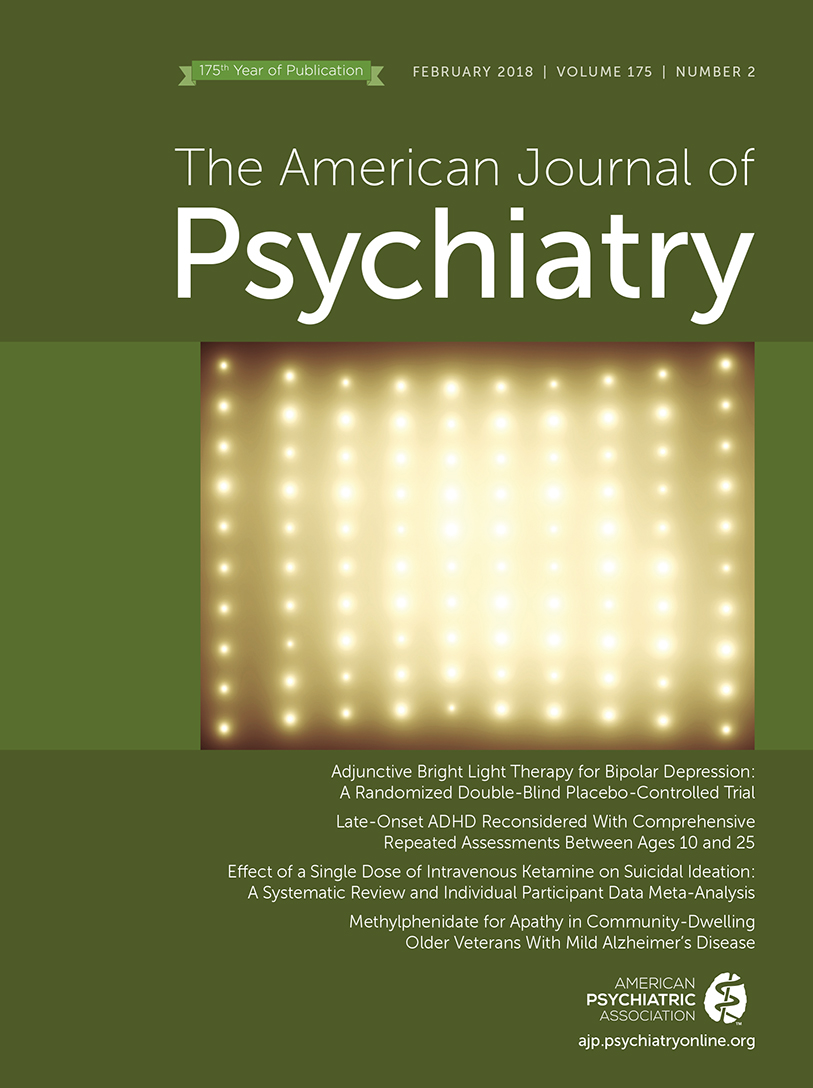Pharmacogenetic Tests in Psychiatry
To the Editor: We feel it necessary to highlight several overlooked and important considerations related to the Clinical Case Conference by Rahman et al., “Misleading Guidance from Pharmacogenomic Testing,” published in the October 2017 issue of the Journal (1).
Pharmacogenetic testing is unstandardized. More than 20 companies in the United States offer testing with highly variable gene content, results reporting, and evidence base (2). Thus, the selection of a test is not trivial, and no two tests should be assumed to be equivalent or interchangeable. The test ordered for Mr. A included the DRD2 gene. However, none of the major pharmacogenetic resource hubs (the Pharmacogenetics Knowledgebase, the Clinical Pharmacogenomics Implementation Consortium, and the Food and Drug Administration) indicate an actionable interaction between DRD2 and clozapine. In fact, less than 20% of pharmacogenetic tests relevant to psychiatry include DRD2 on their testing panels (2), suggesting that the case of Mr. A is an outlier that should not be extrapolated to all pharmacogenetic testing. Unfortunately, the authors do not report which company performed the testing. Such transparency is required to discourage irresponsible testing of unvalidated genetic markers that can cause a setback in the clinician-patient relationship.
There are major differences in the subfields of psychotropic pharmacogenetics. Antipsychotic pharmacogenetics, though promising, has not yet been evaluated in a randomized controlled trial. In contrast, antidepressant pharmacogenetic testing has been supported by multiple randomized controlled trials (3–5), and at least six more are under way.
Providers who order pharmacogenetic testing have a responsibility to educate themselves and their patients about such testing and its limitations. Given the complex biopsychosocial context in which drug response occurs, it would be naive to believe pharmacogenetic testing will ever provide definitive prescribing advice for psychiatric drugs. Pharmacogenetic testing provides an additional tool for clinicians to assist in thoughtful implementation of evidence-based treatment methodologies based on the unique characteristics of the individual, enhancing, rather than replacing, treatment guidelines.
1 : Misleading guidance from pharmacogenomic testing. Am J Psychiatry 2017; 174:922–924Link, Google Scholar
2 : Commercial pharmacogenetic-based decision-support tools in psychiatry. Lancet Psychiatry 2016; 3:585–590Crossref, Medline, Google Scholar
3 : Improved antidepressant remission in major depression via a pharmacokinetic pathway polygene pharmacogenetic report. Clin Psychopharmacol Neurosci 2015; 13:150–156Crossref, Medline, Google Scholar
4 : Efficacy of prospective pharmacogenetic testing in the treatment of major depressive disorder: results of a randomized, double-blind clinical trial. BMC Psychiatry 2017; 17:250Crossref, Medline, Google Scholar
5 : Improved efficacy with targeted pharmacogenetic-guided treatment of patients with depression and anxiety: a randomized clinical trial demonstrating clinical utility. J Psychiatr Res 2017; 96:100–107Crossref, Medline, Google Scholar



